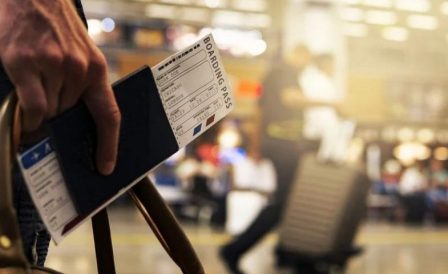New Zealand
The Government has announced a new faster timeline for reopening the border and reconnecting New Zealand with the world. New Zealand’s border will now be fully reopened by the end of July – three months earlier than originally planned.
Аll visa categories including tourist, visitor, and student visas will reopen for applications for travelers from anywhere in the world. Cruise ships can also enter New Zealand from 31 July 2022, with the re-opening of the maritime border to foreign-flagged vessels.
Health requirements
To enter New Zealand, you must meet some health requirements:
- You must be vaccinated. Vaccination requirements to enter New Zealand
- You must take 2 rapid antigen tests (RATs) on arrival.
After you enter New Zealand you must do 2 rapid antigen tests (RATs) on Day 0/1 and Day 5/6 and declare your results. Children under 6 months do not need to be tested. All positive RATs must be registered and followed up with a PCR test.
Testing requirements after arriving
Immigration Rebalance
The Immigration Rebalance has been designed to make it easier to attract and hire high-skilled migrants, while supporting some sectors to transition to more productive and resilient ways of operating, instead of relying on lower-skilled migrant workers. It includes changes to settings for migrant workers and their partners, students, and skilled residence pathways.
The changes to international education include:
Post-study work rights
Changes have been made to post-study work visa settings, which will apply to any student visa applications received on or after 11 May 2022 not covered by transitional arrangements, including student visa applications from people in New Zealand:
• Students will continue to be eligible for post-study work rights if they are studying a bachelor’s degree, bachelor’s honors degree, postgraduate diploma, master’s, or doctoral degree that they have studied full time in New Zealand for a minimum of 30 weeks. For, students undertaking a qualification at Level 7 and below (excluding bachelor’s degrees), they will only be eligible for post-study work rights if the qualification is relevant to an occupation on the Green List. This includes Graduate Diplomas and Diplomas at level 7.
• Post-study work rights for non-degree students who have studied for Green List relevant qualifications will only allow the migrant to work in that occupation, though they can switch employers and work for less than the median wage.
• There are 20 roles on the Green List that have direct pathways from Level 7 and below level qualifications. These include:
- Construction Project Manager;
- Project Builder;
- 12 specific engineering roles;
- Civil Engineering Technician;
- Electrical Engineering Technician;
- Secondary School teacher;
- Early Childhood (Pre-primary School) Teacher;
- Automotive Electrician;
- Diesel Motor Mechanic.
• This change aims to align post-study work rights for non-degree study with skills New Zealand needs. It also addresses some unsustainable post-study working trends seen pre-COVID.
• For most international students eligible for a Post-Study Work Visa, the duration of that work visa will now mirror the time they study in New Zealand, up to a maximum of three years. This change will not apply to Master’s and Ph.D. students, who will continue to receive three years’ post-study work rights, as long as they have spent 30 weeks in New Zealand undertaking full-time study. This change is about proportionality but also recognizes the value to students and employers of experiencing New Zealand education in context.
• International students will no longer be able to apply for a second post-study work visa. This is to reduce the length of time that someone can be working in New Zealand without applying for an Accredited Employer Work Visa, where the employer must first check if a New Zealander is available to do the job.
• Students who have already commenced studying an eligible qualification under current settings, and who have applied for a visa or hold a visa for that specific study, will be considered under the ‘old’ post-study rules. This includes students who enter New Zealand under the latest border exception for 5,000 students, as long as they meet the educational requirements under the current settings. Students who have started a qualification offshore and who apply for a visa from 11 May will be considered under the new rules.
• No changes have been made to in-study work rights for international students which remains an important part of a New Zealand education for some international students and mitigates some of their exploitation risks.
The changes apply to everyone who applies for a student visa from May 11, 2022. Those who applied earlier remain on the old rules.
Living costs
From 31 July 2022, fund requirements will increase:
• From NZ$15,000 to NZ$20,000 per annum for prospective tertiary student visa applicants and to NZ$17,000 for prospective international school students. These amounts will be prorated for shorter lengths of study.
• With the exception of some aviation students, students will need to pay tuition fees for the first year, or first program of study (whichever is the shorter), and they will have to prove funds for the same period.
• Students transitioning to post-study work visas from 11 May will need to show funds of NZ$5,000.

To summarize briefly, nothing terrible has changed, just new details and adjustments. In general, studying in New Zealand has been and remains the most reliable option for the subsequent search for an employer. If you are interested in this option, fill out the form and we will be happy to provide you with our services.
Australia
All COVID-19 border restrictions were lifted. People traveling to Australia no longer have to complete a Digital Passenger Declaration (DPD) to declare their COVID-19 vaccination status, following changes to the Biosecurity Act, which come into effect from midnight 6 July 2022.
“As more and more of us travel internationally and we get more confident in managing our risk of COVID, our airports are getting busier,” Minister O’Neil said.
“Removing these requirements will not only reduce delays in our airports but will encourage more visitors and skilled workers to choose Australia as a destination.
“I know anyone who has traveled internationally since the borders have opened will find this as one less thing to worry about – especially as more Australians get back to traveling overseas.
Those arriving by sea will also benefit, and no longer need to complete a Maritime Travel Declaration. Airlines, cruise ship operators, and other countries may still have specific requirements that travelers need to comply with.
For more information on the changes to international travel, requirements visit the official website.
Canada and Ireland
Regularly issue all types of visas.
Learn more:
If you are interested in choosing a language course or higher education program, please contact us.


